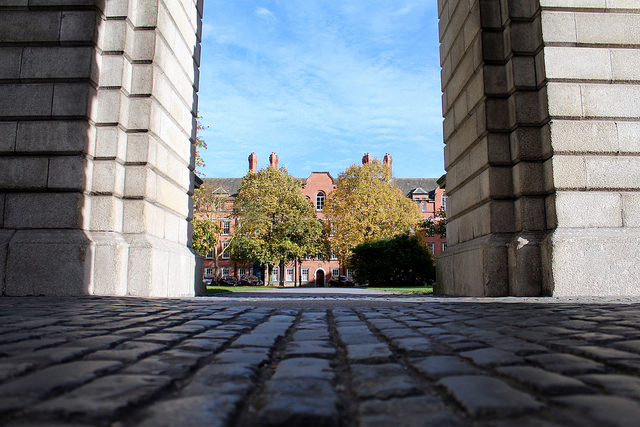The Irish debate about Brexit has been dominated by three issues. Firstly, the border with Northern Ireland and the peace process; secondly, the detrimental impact of Brexit on the Irish economy; and thirdly, the protection of Ireland’s low corporation tax.
The idea that a new border could hack through the island in two years time is an appalling prospect for all citizens, North and South. The deal achieved before Christmas between the EU and the UK about a free-flowing border is not bulletproof, but a fudge. Unsurprisingly, the precise meaning of the agreed wording is already resurfacing in the current round of negotiations.
In spite of the undeniable urgency of the border issue and of the economic ramifications of Brexit, the debate about Ireland’s position in the EU after Brexit has been too one-sided. Arguably, it has eclipsed a broader social, cultural and educational vision for Ireland in post-Brexit Europe.
Brexit also creates new and potentially exciting opportunities for the higher education sector in the South
As regards the higher education sector, Brexit poses significant challenges for Ireland, especially for Northern institutions. Currently, the UK is the single most important partner for Ireland on EU grants. It also ranks first in co-authored publications, and it is an important destination for early-career researchers, postdoctoral fellows and academic staff.
North/South research collaborations in particular are dependent on EU funding: in the period between January 2014 and October 2016, €63.4 million funding was won in Horizon 2020 for joint North/South projects. The Northern slice of EU funding constitutes more than half of all Northern Irish funding awards in that period. It is inconceivable that the UK government will make up this shortfall, should the UK exit from the EU funding framework.
But Brexit also creates new and potentially exciting opportunities for the higher education sector in the South. The Republic of Ireland can become an increasingly attractive destination for EU researchers and international students who no longer envisage their future in the UK after Brexit. And vice versa: existing and new partnerships with EU countries – large and small – will assume strategic importance for the higher education sector in the Republic of Ireland at the level of research collaborations, joint funding bids, and staff and student mobility.
In its report published in 2017, the Royal Irish Academy Brexit Taskforce recommended continued strategic investment in North/South, East/West collaboration with UK institutions as well as greater participation of Irish-based researchers in international and European science policy, the development of joint degrees with universities in EU member states and, very importantly, increased participation in Erasmus+.
Only if we overcome the impoverished idea of the EU as a mere marketplace, can we convert daunting challenges into creative opportunities
The ambitious goal to grow inward and outward mobility can only be achieved through a programme of sustained capital and infrastructure investment in higher education and research to make up for lost ground. We also need to desperately boost the uptake of modern language degree programmes, which currently stand at a disappointing two to three per cent of all Higher Education Authority enrolment. Modern language programmes not only equip graduates with much-needed language skills, but they also engender intercultural awareness that is further enhanced by participation in the Erasmus programmes, which equip students with invaluable transferable skills.
On top of all these strategic initiatives, we need, above all, a public debate about Ireland, the EU and Europe that addresses the socio-cultural and political future of Ireland in the EU. Only if we overcome the impoverished idea of the EU as a mere marketplace, can we convert daunting challenges into creative opportunities.
Anne Fuchs is Professor and Director of the UCD Humanities Institute and, since August 2017, Vice-Chair of the Irish Humanities Alliance. In 2017 she served on the Royal Irish Academy Brexit Taskforce.







